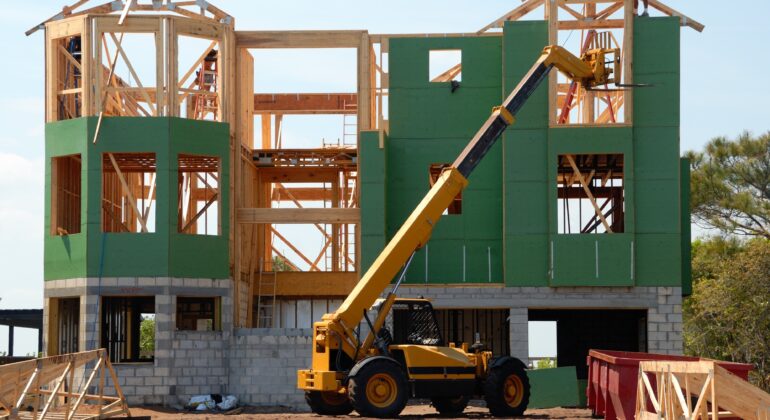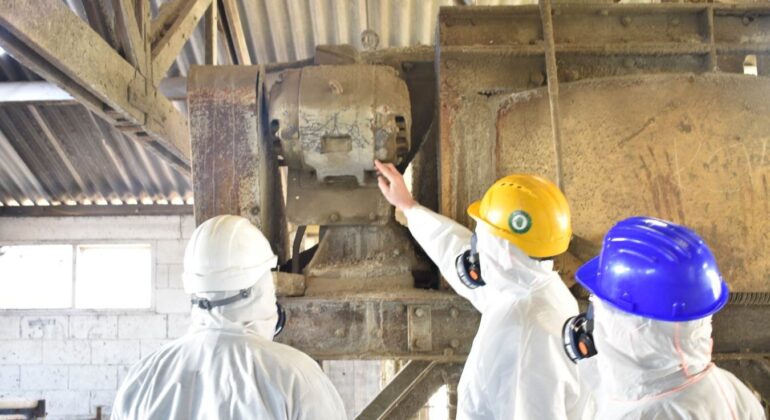Who Pays for Party Wall Surveyors? Party Wall Notice Costs & Rights Explained for Adjoining Owners

If your neighbour is planning works such as a chimney breast removal, loft conversion, single or double storey extension or basement extension, you may have received (or expect to receive) a Party Wall Notice. Understandably, many Adjoining Owners are concerned about their rights, how to protect their property, and crucially — who pays the bill!The Party Wall etc. Act 1996 sets out clear procedures to ensure both you and your neighbour are protected when building works affect a shared or adjoining structure. This blog will explain what Party Wall Notices mean for you as the Adjoining Owner, how a Party Wall Surveyor can help, and who pays the bill!
What Is a Party Wall Notice?
A party wall notice is a formal letter served by the Building Owner. It informs the Adjoining Owner that their notifiable works may affect your property and gives you the right to consent or dissent.
Works that commonly require a notice include:
- Chimney breast removal (where the chimney is attached to a party wall)
- Loft conversions (cutting into the party wall to insert beams)
- Single or double storey extensions (excavations near shared or non-shared structures)
- Basement extensions (excavations near shared foundations)
- Extensions on or close to the boundary line
- Demolition works
The notice must be served correctly and within the required timeframe. Otherwise, if the Building Owner chooses to proceed with notifiable work without providing formal notice, should any damage occur to your Adjoining Owners property, it will result in costly disputes.
Why Party Wall Notices Matter for Adjoining Owners?
Party wall notices are not just paperwork; they are your opportunity to:
- Protect your property by ensuring a Surveyor records its current condition before works begin.
- Have a say in how the works are carried out, reducing risk to your home.
- Prevent disputes by creating a legally binding agreement (the Party Wall Award).
By responding properly to a notice, you safeguard your position and avoid being caught off guard by unexpected issues.
Your Options When You Receive a Party Wall Notice
When a notice arrives, you have four possible responses:
1. Consent: Allow the works to go ahead without appointing a surveyor.
Risk: If damage occurs later, you may need to prove it was caused by the works.
2. Consent subject to a Schedule of Condition: Appointing a Surveyor to records the condition of the neighbouring property prior to the commencement of the neighbouring works.
Benefit: Protects both parties in the event a dispute in relation to damage arises.
3. Dissent and Appoint an Agreed Surveyor: Both you and your neighbour jointly appoint one impartial Surveyor.
Benefit: Protects your property while keeping costs lower.
4. Dissent and Appoint Your Own Surveyor: You appoint a Surveyor to represent you, while your neighbour appoints theirs.
Benefit: Extra reassurance, as your Surveyor’s duty is to protect your interests.
Who Pays for Party Wall Surveyor Costs?
The Building Owner (your neighbour planning works) usually pays.
They are responsible for all reasonable costs arising from the party wall process, including surveyor fees.
As the Adjoining Owner, you rarely pay.
The only time you might contribute is if you request additional work that benefits you (for example, if you ask your neighbour to carry out extra works on your behalf or if your require your Surveyor to carry out additional site visits outside of the usual protocol).
Typical Costs of Party Wall Notices & Surveyors
For context, here’s what costs usually look like in London:
Party Wall Notice
- Served by Building Owner / surveyor: £65-£150 per notice.
- The Adjoining Owner does not pay this.
Surveyor Fees
- Agreed Surveyor: £800–£1,500 total (covering both sides).
- Two Surveyors (one each): £800–£3,500+ depending on complexity.
- Schedule of Condition Report: £250–£600.
Again, these costs are the responsibility of the Building Owner — not the party impacted by the notifiable work, the Adjoining Owner.

The Role of a Party Wall Surveyor in Protecting You
A Party Wall Surveyor is your safeguard throughout the process. Their responsibilities include:
- Preparing a Schedule of Condition (a detailed record of your property before notifiable works start).
- Drafting the Party Wall Award, which sets out how notifiable works must be carried out.
- Ensuring measures are in place to prevent or minimise damage.
- Requiring the Building Owner to make good or compensate you if damage does occur.
If you and your neighbour appoint an Agreed Surveyor, they act impartially for both parties. If you each appoint your own, both Surveyors work together to agree the Award.
Timeline of the Party Wall Process for Adjoining Owners
- Notice Received: Served at least 2 months before works on the party wall, or 1 month before excavations.
- Respond within 14 days: Consent or dissent.
- If dissent: Surveyor(s) appointed, Schedule of Condition prepared.
- Party Wall Award: Served once all details are agreed.
5. Works begin legally: With protections in place for your property.
Key Protections for Adjoining Owners
By engaging with the process, you benefit from:
Legal protection: Works cannot proceed lawfully without notice and, if you dissent, without an Award.
Evidence of condition: The Schedule of Condition can help resolve potential disputes in relation to damage.
Compensation rights: If damage occurs, the building owner must cover repair or compensation.
Professional oversight: A surveyor ensures works are carried out safely and correctly.
FAQs About Party Wall Notices for Adjoining Owners
You cannot stop lawful works, but you can control how they are carried out and ensure protections are in place.
Generally, no. The Building Owner pays all reasonable Surveyor costs unless you request additional work that benefits you.
This is unlawful. You can seek an injunction to stop works until the party wall process is followed. However, we advise that you first seek advice from a qualified Party Wall specialist.
You can, and in complex cases it may be wise. However, many Adjoining Owners are comfortable appointing an Agreed Surveyor
The Party Wall Award will require the Building Owner to repair damage or pay you compensation.
How to Protect Yourself Without Paying the Bill
As an Adjoining Owner, your best steps are:
Respond promptly to notices — don’t ignore them.
Consider dissenting to ensure a Surveyor protects your interests.
Keep communication open with your neighbour while relying on professional Surveyors to handle legalities.
Remember: the Building Owner covers the costs.
If you have received a Party Wall notice, it is natural to feel uncertain about your rights and potential costs. The good news is that, as the Adjoining Owner, you are protected by law and usually won’t have to pay.
At Party Wall Guru, our experienced Party Wall Surveyors are here to guide you every step of the way — whether you need advice on responding to a notice, appointing an Agreed Surveyor, or understanding your rights under the Act.
Call us Today on 02080589883 to protect your property, avoid disputes, and move forward with peace of mind.













